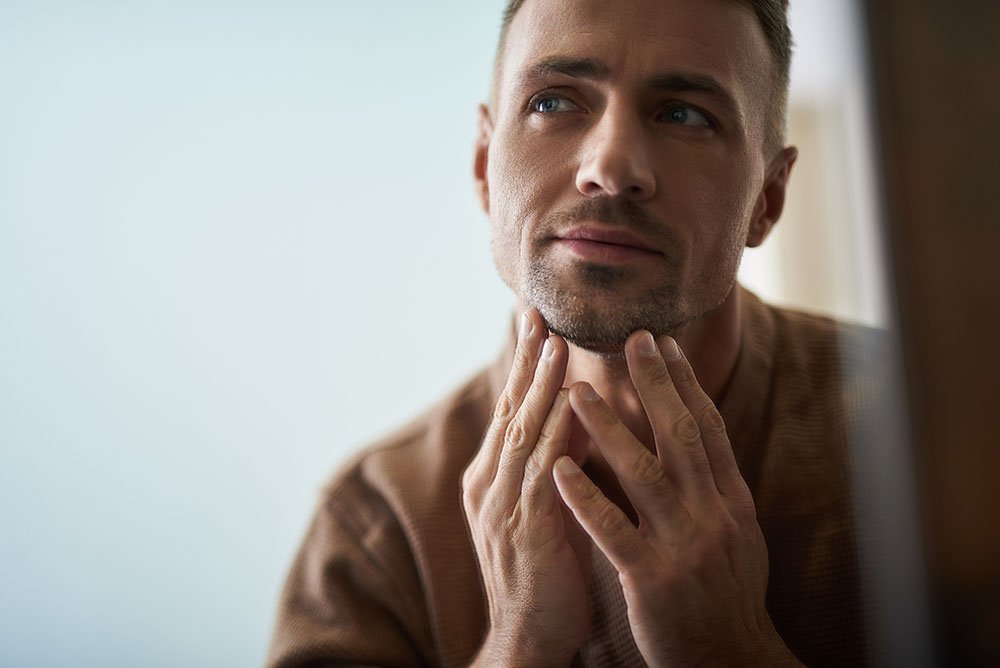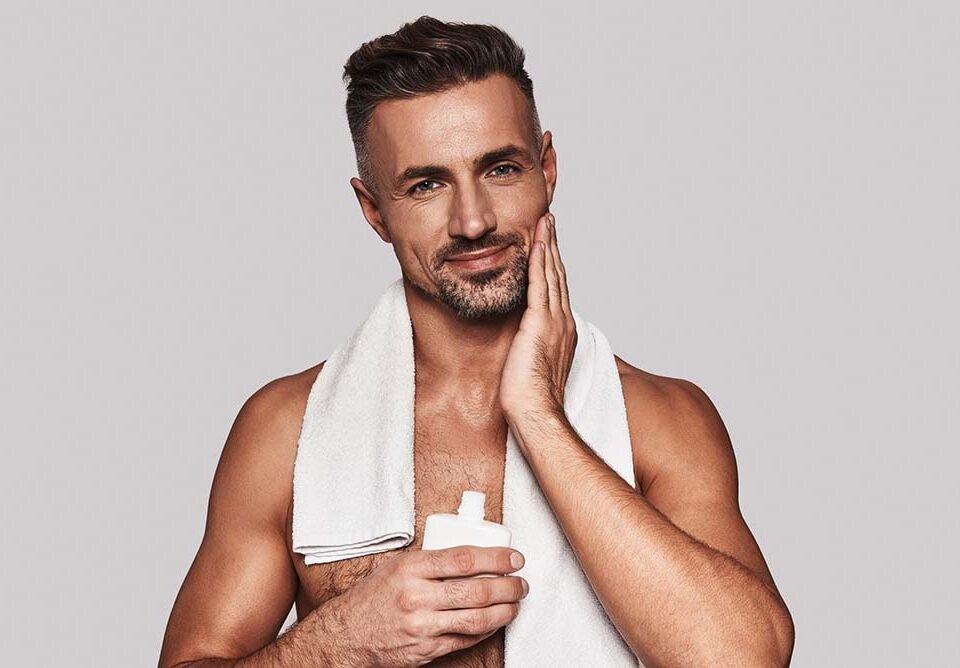In the world of beauty and self-care, the spotlight often shines on women. However, men’s skincare is a topic that requires equal attention.
Healthy skin is essential for everyone, regardless of gender. This article brings to light the essentials of men’s skincare, offering a comprehensive guide on how to maintain healthy skin all over the body.
Table of Contents
Understand The Skin Type
Before diving into a skincare regimen and looking for solutions available for various skin concerns that aren’t necessarily related to the face, it’s essential to understand one’s skin type. For instance, if you’re dealing with Pearly Penile Papules (PPP), a common skin condition in men, there are low cost PPP removal options available.
Skin types vary significantly, with each one requiring distinct care. Here are the common types you should know:
Normal Skin
Not too dry and not too oily, normal skin has few imperfections, no severe sensitivities, barely visible pores, and a radiant complexion. If you have normal skin, continue with a balanced skincare routine to maintain its health.
Dry Skin
This type tends to feel tight and might even flake or itch. Dry skin often presents with nearly invisible pores, a rough texture, red patches, diminished elasticity, and more noticeable lines. If your skin is dry, focus on moisturizing frequently and avoiding harsh, drying products.
Oily Skin
People with oily skin often deal with enlarged pores and a shiny and thick complexion. You’re also prone to blackheads, pimples, and other blemishes. For this skin type, you should use oil-free, non-comedogenic products that won’t clog pores.
Combination Skin
This type exhibits dry or typical traits in some areas and oiliness in others, such as the T-zone (nose, forehead, and chin). Combination skin can have pores that look larger than usual, blackheads, and shiny skin. Use different products to address the distinct areas of your face if you have combination skin.

Close up portrait of attractive young gentleman touching his chin while checking skin condition. Copy space in left side
Sensitive Skin
This type can show symptoms like redness, itching, burning, or dryness. Sensitive skin might be genetically predisposed or caused by external factors like environment or product use. If your skin is sensitive, find out what triggers these reactions to prevent them.
Remember, factors like age, climate, hormones, and lifestyle changes can cause your skin type to change over time. Continually assess your skin’s needs and adjust your routine accordingly.
Prioritize Cleansing
Cleansing, the first step in any skincare routine, is crucial for maintaining healthy skin. Using a gentle, non-drying cleanser helps remove dirt, oil, and impurities without stripping the skin of its natural oils. Incorporate this step into your morning and night routine to prepare your skin for further care.
Remember, a good body wash is the cornerstone of healthy skin all over the body. Look for ingredients like aloe vera and chamomile that nourish and soothe the skin.
Consider Exfoliation
After cleansing comes another essential step, exfoliation. It’s not something to be overlooked. Exfoliation removes dead skin cells, allowing newer, healthier skin to surface. Aim to exfoliate once or twice a week, based on your skin’s sensitivity. For the body, a scrub or loofah does the trick, whereas a facial scrub or chemical exfoliant suits the face.
Don’t Forget To Moisturize
Once your skin is clean and fresh, it’s time to moisturize. A good moisturizer maintains the skin’s hydration, preventing dryness and flakiness. Remember, even if your skin is oily, don’t skip this step. There are lightweight, non-greasy moisturizers out there tailored for oily skin.
Similar to facial skin, your body also requires hydration. Applying a body lotion or cream post-shower helps lock in moisture, ensuring your skin remains soft and supple.
Protection Against The Sun
The importance of sun protection cannot be overstated. Skin aging and even skin cancer can result from long-term exposure to the sun’s harmful UV rays. Therefore, it’s vital to apply broad-spectrum sunscreen every day, irrespective of the weather.
For the body, use sunscreen with an SPF of at least 30. However, during high sun exposure times or for those with fairer skin, an SPF of 50 or more may be recommended.
Nutrition And Hydration
Skincare doesn’t only involve topical treatments. What you put into your body significantly affects your skin. A diet rich in fruits, vegetables, lean proteins, and whole grains promotes healthy skin. Don’t forget to hydrate. Drinking adequate water throughout the day helps maintain skin elasticity and prevent dryness.
Get A Good Night’s Sleep
Last but certainly not least is sleep. Quality sleep allows your skin to regenerate and repair. During these restful hours, your skincare products work their magic. So, ensure you’re getting a good night’s sleep regularly.
Conclusion
Maintaining healthy skin is a combination of understanding your skin type, establishing a routine, opting for targeted treatments when needed, and taking care of your overall health. It’s an ongoing process that calls for commitment. However, with time and consistency, you’ll notice a positive change in your skin’s health and appearance. Remember, skincare is self-care, and it’s essential for everyone, including men.










